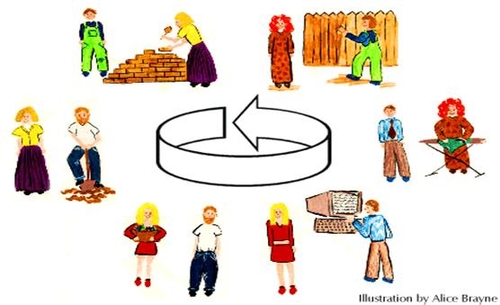Another example of a frugal innovation is the local exchange trading system, originated by Michael Linton in 1982. The system he designed was intended as an adjunct to the national currency, rather than a replacement for it
A local exchange trading system is a locally organised economic organisation that allows members to participate in the exchange of goods and services among others in the group.
Local Exchange Trading Systems (LETS) use a locally created currency
They are:
- local
- non profit trading networks
- where goods and services can be traded, without the need of currencies
By using credits you don’t have to directly trade with other people in the community. For example you can earn credits for babysitting and use the same credits to pay someone who cleans your windows.
The earned and issued credit will be centrally managed and can be viewed by all members of the Local Exchange trading system
Local Exchange trading systems generally have the 5 following criteria.
- cost of service : from the community for the community
- consent : there is no compulsion to trade
- disclosure: information about balances is available to all members
- equivalence to the national currency
- no interest
Local exchange trading systems exist in many countries. An example is in the Netherlands is. Noppes. Noppes is an online local exchange trading system. People can advertise and trade with noppes. These represent the actual credits.
So why are local exchange trading systems a frugal innovation?
Because, they are innovative, local, people are collectively bonded and it’s cheap
